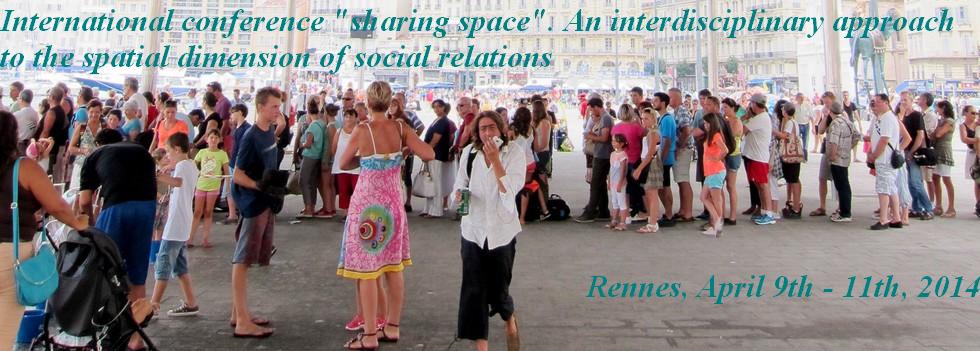The full text of the call for papers is available here : Call for papers ESO conference.pdf
This conference arises out of the research interests of the team Espaces et Sociétés (UMR 6590 ESO), stepping on a tradition of social geography recognised both nationally and internationally and which has developed, over the years, in an interdisciplinary direction. The objective of the conference is to generate an interdisciplinary dialogue around epistemological, theoretical and methodological issues linked with the study of the spatial dimension of social relations.
Indeed, even if one has to be highly careful with the rhetoric of the new and of change, which nowadays constitutes an almost unavoidable topos in order to stimulate interest and to be different from others, the idea according to which the Humanities and Social Sciences have been engaged for several decades in a “spatial turn” seems broadly justified. This refers first of all to a change in awareness and perspective from the point of view of the models of analysis and interpretation, accounting for a growing interest in the spatial dimension of social relations.
This change has been supported in particular by two major developments:
- The crisis affecting the mainstream historicist and universalist paradigms which considered the social world, its characteristics and its driving forces through essentially aspatial models, such as the theories of modernisation and development and a part of marxist currents;
- The relativisation of the national scale, which largely configured the problematics of social
sciences, around the political figure of the Nation State, but also around implicitly organicist social imaginaries and models; this led to confining theoretic and empirical investigation to a space extremely limited both representationally and territorially.
The idea of a “spatial turn” can also be interpreted not so much as a change in awareness and
perspective, but rather as a change of paradigm even within the disciplines in which space was historically considered a privileged focus of scientific study. Here again, the rhetoric of the turning point comes easily to the fore, in the form of the “constructivist turn”. This expression describes a radical critique of naturalist, essentialist and determinist approaches of space. To reason in terms of construction of the spatial dimension of social relations is both to refuse all forms of separation between the “spatial” and the “social” and to fully integrate the temporal and spatialized elaboration of the phenomena studied.
These evolutions are not simply the product of the endogenous dynamics of the Humanities and Social Sciences, they are inseparable from major socio-historical transformations :
- the dynamics of “modernisation” across the planet, which highlight phenomena of convergence and also of divergence, render obsolete the unequivocal figurations in terms of progress or revolution and force one to take into account the contingency of socio-spatial configurations;
- the dynamics of globalisation and of regionalisation (supra- as well as infra-national) which render the multi-scale approaches increasingly essential;
- the accelerated dynamics of interaction of human activities and land environments pointing to the urban-technological society and the productivist and consumerist mentality as major forces of change, which prompts one to think about the coupling of societies, techniques and “nature”;
- the revolution linked to the emergence of “cyberspace”, which is certainly only in its infancy and which calls for in depth reflections about the space of “virtual reality”, at the individual as well as the community level.




